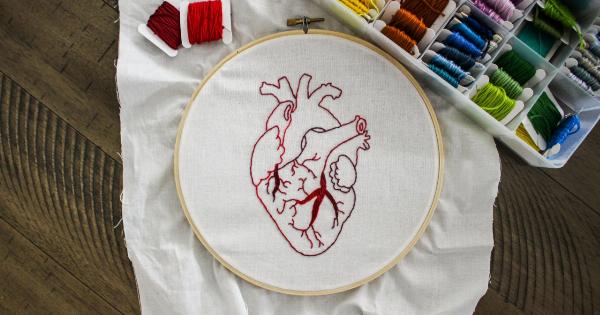Energy drinks have become increasingly popular over the years, especially among young adults seeking an extra boost of energy. These beverages are marketed as providing increased alertness, improved physical performance, and enhanced mental focus.
However, what exactly goes on inside the body when we consume these energy-boosting drinks? In this article, we will explore the physiology of energy drinks and how they affect various systems within the body.
Understanding the Ingredients
Energy drinks typically contain a combination of caffeine, taurine, guarana, B-vitamins, and other stimulating compounds. Let’s take a closer look at how each of these ingredients affects our physiology.
The Role of Caffeine
Caffeine is one of the primary ingredients found in energy drinks. It is a stimulant that affects the central nervous system, reducing fatigue and increasing alertness.
When consumed, caffeine blocks the actions of adenosine, a neurotransmitter responsible for promoting sleep and relaxation. This blockade leads to increased wakefulness and reduced feelings of tiredness.
Taurine and Its Effects
Taurine is an amino acid that is naturally present in our bodies and plays a role in various physiological processes. Energy drinks often contain synthetic taurine, which is believed to have stimulating effects on the brain and muscles.
Taurine has the ability to enhance calcium signaling in muscle cells, resulting in improved muscle contractility and physical performance.
Guarana and its Kick
Guarana is a plant extract that is known for its high caffeine content. Energy drinks often include guarana due to its stimulant properties.
The caffeine in guarana is released more slowly than that found in coffee or tea, providing a prolonged energy boost. Additionally, guarana contains other compounds that may enhance cognitive function and improve mood.
B-Vitamins and Their Role
Many energy drinks also contain a variety of B-vitamins, including B6, B12, and niacin. These vitamins are involved in energy production and the metabolism of carbohydrates, fats, and proteins.
While B-vitamins themselves do not provide an immediate energy boost, they play a vital role in ensuring our bodies can effectively convert food into usable energy.
Effects on the Cardiovascular System
When we consume energy drinks, the caffeine and other stimulating compounds can have various effects on the cardiovascular system.
These drinks have been associated with an increase in heart rate and blood pressure, potentially leading to cardiovascular stress. Individuals with underlying heart conditions or high blood pressure should exercise caution when consuming energy drinks.
Impact on the Nervous System
The central nervous system, which includes the brain and spinal cord, is highly influenced by energy drink consumption.
The caffeine in these beverages stimulates the release of neurotransmitters like dopamine and norepinephrine, which are involved in mood regulation and the body’s stress response. Energy drinks may temporarily enhance mental focus and alertness but can also lead to irritability, restlessness, and difficulty sleeping if consumed in excess.
The Role of Sugar
Many energy drinks contain a substantial amount of sugar, often in the form of high-fructose corn syrup. Sugar provides a quick source of energy but can also lead to a spike in blood glucose levels, followed by a crash.
Excessive sugar consumption, especially on a regular basis, can have negative long-term effects on overall health and contribute to weight gain and metabolic disorders.
Dehydration and Electrolyte Imbalance
Due to their diuretic properties, energy drinks can contribute to dehydration if not consumed with sufficient water or in excessive amounts.
Excessive consumption may also disrupt the delicate balance of electrolytes in the body, such as sodium, potassium, and magnesium. This imbalance can impact muscle function, nerve signaling, and overall hydration status.
Mixing Energy Drinks with Alcohol
Combining energy drinks with alcohol is a common practice among young adults. However, this combination can be dangerous.
Energy drinks can mask the depressant effects of alcohol, leading individuals to consume more alcohol than they would typically tolerate. This can increase the risk of alcohol poisoning, impaired judgment, and risky behaviors.
Conclusion
While energy drinks may provide a temporary boost of energy and alertness, it is essential to understand the physiological effects they have on our bodies.
Caffeine, taurine, guarana, and B-vitamins all play a role in stimulating various systems within our bodies. However, excessive consumption or mixing with alcohol can have detrimental effects on our cardiovascular system, nervous system, hydration, and overall health. It is crucial to consume energy drinks in moderation and be aware of their potential risks.





























